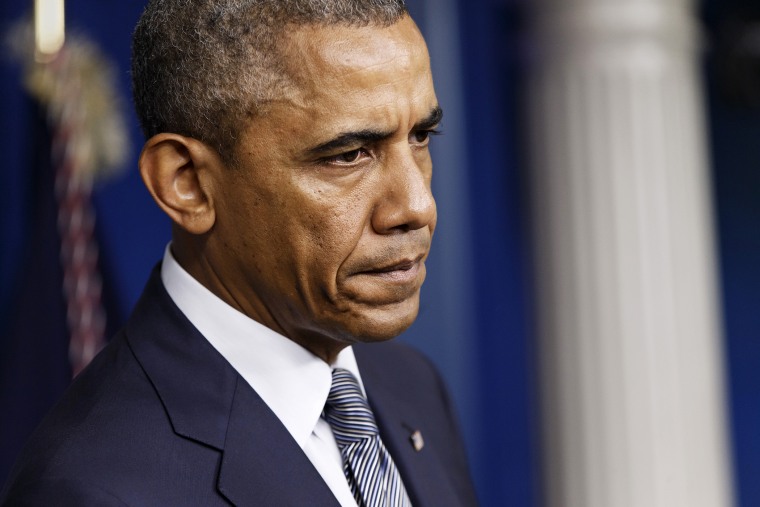President Obama has been deploying sharp rhetoric to condemn Russia after last week’s downing of Malaysia Airlines Flight 17, which is believed to have been committed by pro-Russian separatists in Ukraine. Obama warned that “costs for Russia’s behavior will only continue to increase” if Moscow continues to back the separatists. On Monday, he said the “burden is now on Russia” to allow unfettered access to the crash site and argued that the behavior of the separatists has “no place in the community of nations.”
But actions speak louder than words. And when it comes to Russia, America has limited options.
The U.S. and its allies clearly want to crack down on Russia, believing the country supplied an anti-aircraft missile to the separatists who then fired it at the plane. In a vacuum, the West could slap Russia with crippling sanctions, or flood Ukraine with money and military aid. But the world is more complicated than all that, and extenuating circumstances may make it difficult for the U.S. to be as forceful as it would like, leaving Obama in a very tricky position. Here’s why:
The Iranian nuclear negotiations:
Last week, Iran and six world powers – including the U.S. and Russia – agreed to an extension of negotiations regarding a nuclear deal with Tehran that would ease sanctions in exchange for Iran putting the breaks on its efforts to develop a nuclear weapon. The downing of Flight 17, however, has put a wrench into the plan.
Russia, a key ally of Iran’s, is seen as a crucial player in any deal. Moscow has real business interests in Tehran, including oil and gas deals and nuclear reactors, which both countries say they need to produce electricity.
Putin has already made clear he isn’t happy with Obama’s new slew of sanctions and could retaliate by complicating the Iran negotiations.
“Putin is in prime position here to gum up the works,” wrote Paul Brandus, a member of the White House press corps who lived in Moscow for five years. "He can influence the course of these nuclear talks with Iran, slow them down, even derail them. If he can protect Russian business interests in Iran while sticking it to Obama, why wouldn't he?
Europe’s dependence on Russian gas
Since Russia’s annexation of the Crimea region in Ukraine, the U.S. has been trying to ratchet up support among European countries to tighten sanctions against Russia as punishment. But many European countries, including Italy, Germany, Bulgaria, Romania, Hungary and Slovakia, are heavily dependent on natural gas from Russia. European leaders are worried that stronger sanctions would throw the European economy into turmoil.
“For all the tough talk, Europe is unlikely to punish Russia over last week's downing of an airliner over Ukraine beyond speeding up the imposition of already agreed individual sanctions,” reported Reuters.
The Syria question
Last summer, Russia and the U.S. negotiated an important deal with Syria to compel Damascus to hand over its chemical weapons. Earlier this month, an American ship picked up more than 500 tons of chemical weapons –supposedly the last turned over by Syria under the deal. Still, there is uncertainty that Syria has truly surrendered everything. And there are also lingering fears that if Moscow yanked its support for this deal -- which pulled the region back from the brink of potential U.S. air strikes -- that things could devolve quickly.
The U.S. Congress
President Obama in June urged Congress to back his “European Reassurance Initiative,” which would give up to $1 billion for increased military rotations in Europe and allow the U.S. Navy to increase its deployment to NATO forces.
The initiative was announced following the crisis in Ukraine with the goal of supporting Western allies near Russia’s borders, including Georgia and Moldova. Whether or not the program could pass a budget-conscious Congress is yet to be seen and the program has already come under scrutiny by some Republicans.
“We are part of NATO, where we are pledged to defend each other when attacked,” said Rep. Mac Thornberry, a Texas Republican. “So why does Europe need to be reassured with money?”
